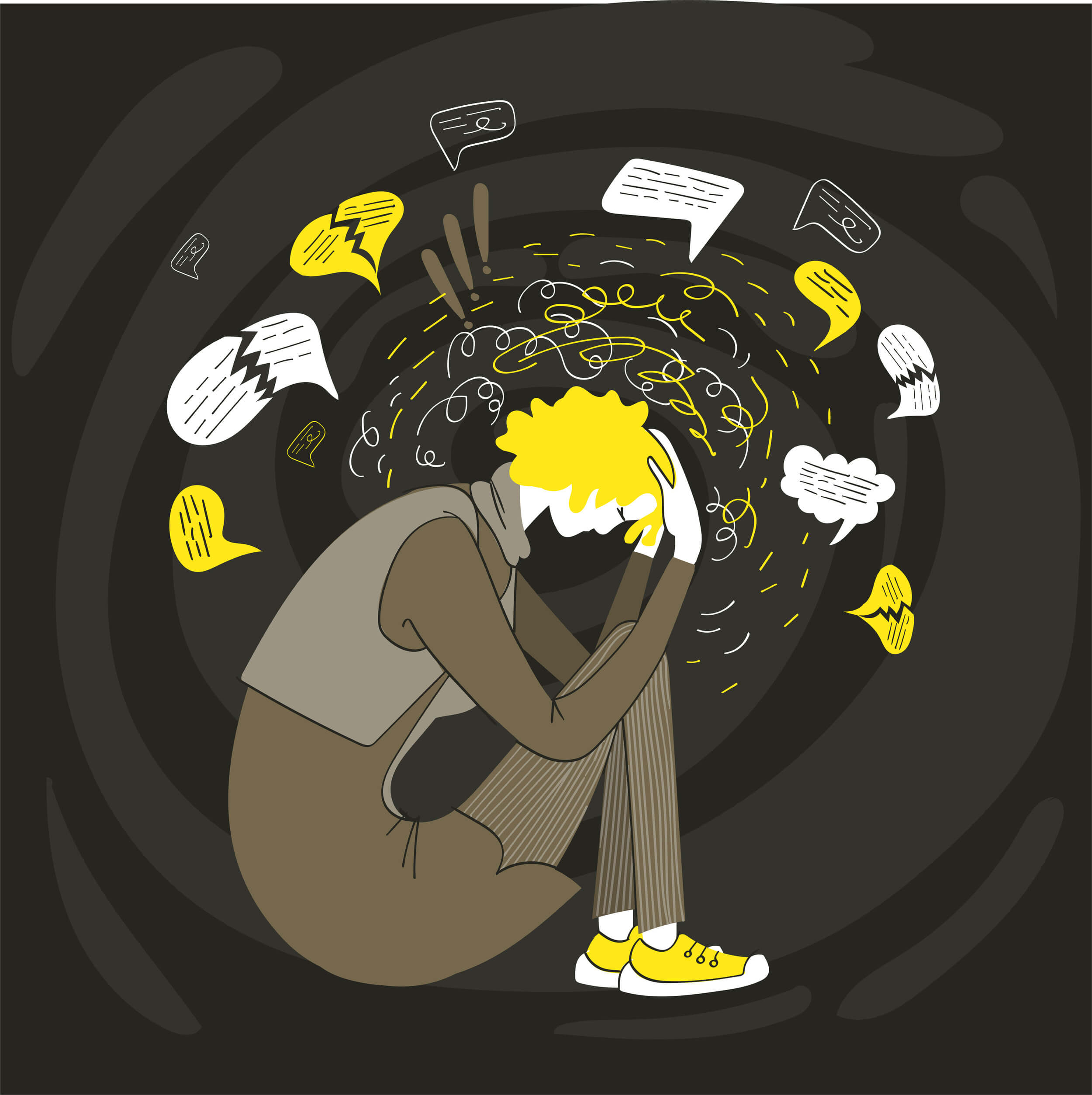Depression is more than just feeling down. It’s a condition that can affect anyone, in many different ways. For some, it’s a constant sadness or feeling like they just can’t get through the day. For others, it’s more about losing interest in things they once enjoyed or feeling tired all the time. If you’ve been struggling with depression, you’re not alone, and there’s no shame in reaching out for help. This article will highlight common signs that you may be struggling with depression and offer simple, practical ways to improve your mood and start feeling better again.
1. Continuous Low Mood or Sadness
When you’re feeling down for weeks without a clear reason, it might be more than just a rough patch. A continuous low mood or sadness can make it hard to get out of bed, engage with others, or find joy in things that once mattered. If this sounds familiar, you’re likely struggling with depression.
How to Improve:
- Try mindfulness or journaling to acknowledge your feelings.
- Move your body, even light exercise can help, like a short walk.
- Consider talking to a mental health professional for extra support and guidance.
2. Loss of Interest in Activities
One of the clearest signs that you’re struggling with depression is losing interest in activities you once loved. This can leave you feeling disconnected and isolated, especially if things that used to bring joy no longer seem worth your time.
How to Improve:
- Try new hobbies or reconnect with old interests.
- Set small, achievable goals to feel more involved in life again.
- Reach out to loved ones or a therapist for support during this time.
3. Lack of Energy and Constant Fatigue
Do you feel drained even after a full night’s sleep? Constant fatigue is a sign of depression that often goes unnoticed. It can make everyday tasks feel like huge challenges, leaving you stuck in a cycle of exhaustion and frustration.
How to Improve:
- Improve your sleep routine — keep consistent hours and reduce screen time before bed.
- Exercise lightly, like stretching or walking, to get your energy flowing.
- Focus on a balanced diet that can help naturally boost your energy levels.
4. Difficulty Concentrating
When depression hits, it can be tough to stay focused. Difficulty concentrating, making decisions, or even remembering things can make daily life feel overwhelming, affecting your work, relationships, and overall well-being.
How to Improve:
- Break tasks into smaller, easier-to-handle steps.
- Eliminate distractions by organizing a quiet workspace.
- Practice relaxation techniques like deep breathing to clear your mind and improve focus.
5. Physical Ailments with No Clear Cause
Depression doesn’t just affect your mind; it shows up in your body too. You may notice things like headaches, stomachaches, or back pain that don’t have a medical explanation. These physical symptoms can add to the stress, making it harder to cope.
How to Improve:
- Consult a healthcare provider to make sure there’s no underlying medical issue.
- Add light stretches or relaxation exercises to ease the tension in your body.
- Try deep breathing to reduce physical discomfort and calm your mind.
6. Changes in Sleep Patterns
If you’re either sleeping too much or struggling with insomnia, it could be a sign of depression. These changes mess with your body’s natural rhythm, leaving you feeling even more exhausted and out of sync.
How to Improve:
- Develop a relaxing bedtime routine to signal to your body that it’s time to sleep.
- Avoid caffeine and heavy meals before bed.
- Consider relaxation exercises like meditation to help calm your mind before sleep.
7. Feeling Guilty or Worthless
Do you often feel like you’re not good enough or that you’re to blame for everything? Persistent feelings of guilt or worthlessness are common with depression and can eat away at your self-esteem, making you withdraw from others.
How to Improve:
- Write down your negative thoughts and challenge them by questioning their truth.
- Seek therapy or counseling to work on building self-compassion.
- Engage in activities that lift your self-esteem, like practicing positive affirmations.
8. Suicidal Thoughts or Thoughts of Harm
If you’re struggling with depression, thoughts of self-harm or suicide can surface. These serious symptoms indicate the need for immediate help and shouldn’t be ignored.
How to Improve:
- Reach out immediately to a therapist or trusted person for help.
- Call a suicide prevention hotline or head to an emergency room if needed.
- Work with a mental health professional to create a safety plan for tough moments.
How to Improve Your Mood and Start Healing
When you’re struggling with depression, it may feel impossible to get back on track. But healing is possible, and you don’t have to take big steps all at once. Start with small changes that can gradually lead to bigger improvements.
Self-compassion is key. Be kind to yourself, and understand that healing takes time. It’s okay to feel down sometimes, but don’t beat yourself up over it. Instead, acknowledge your feelings and move forward with patience.
Don’t hesitate to seek professional help if you need it. Whether it’s therapy, counseling, or seeing a doctor, professional support can help you make a solid plan for healing. Social support is also vital — lean on friends, family, or a support group who can help you feel less alone.
Even on tough days, remember that you don’t have to figure everything out at once. Healing starts with one small step at a time.
When to Seek Help
If you’re struggling with depression and symptoms last for more than two weeks, or if they’re seriously affecting your daily life, it’s time to seek help. This is especially true if you’re having thoughts of self-harm or suicide. Don’t wait for things to get worse.
Available Resources: Reach out to a therapist, counselor, or doctor who can guide you through treatment options. There are also hotlines and mental health organizations available 24/7 to support you during tough times.
Conclusion
Feeling down doesn’t mean you’re alone—many people go through it, and asking for help is a powerful step forward. Recognizing the signs early can make a big difference in how you feel. Taking small actions, like seeking support or making simple changes, can start the healing process. Don’t hesitate to reach out to a therapist, family, or friends. Building a strong support network helps you stay on track for long-term mental health. You don’t have to carry the weight on your own—there are always ways to feel better and move toward a brighter tomorrow.















